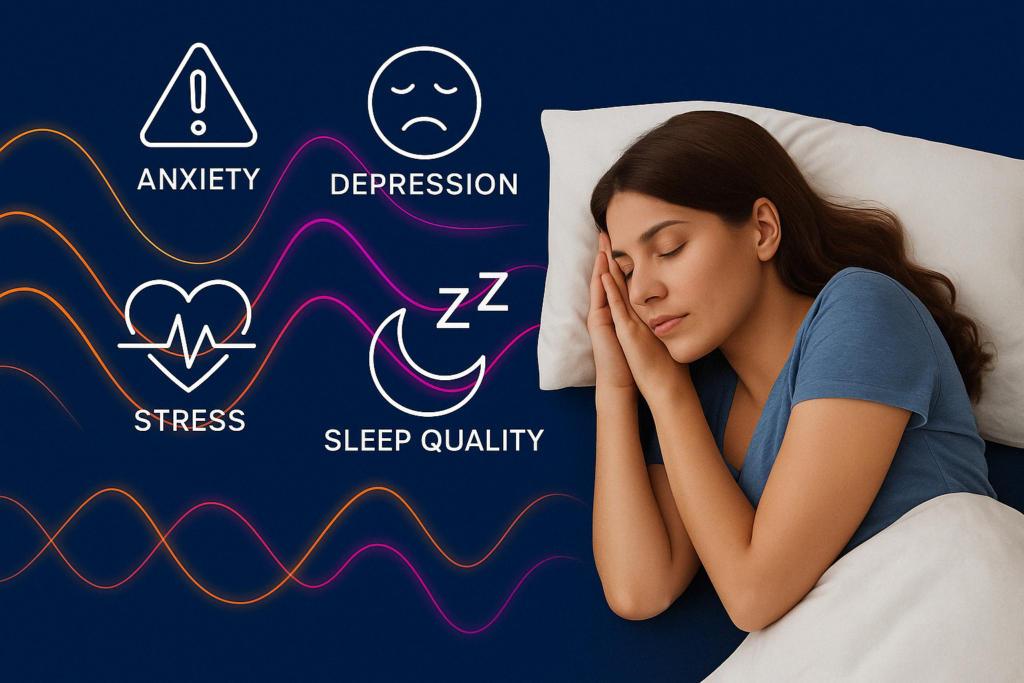Effects of acoustic neurostimulation with binaural beats and isochronic tones on anxiety, depression, stress, and sleep quality: a randomized clinical study
Abstract
Aim
To evaluate the application of an acoustic neurostimulation program with binaural beats (BB) and isochronic tones (IT) isolated or in association, and its effects on sleep, depression, anxiety, and stress in healthy workers.
Methods
This was a randomized, single-blind, parallel-group clinical trial, carried out with a group of 37 healthy volunteer workers, aged between 18 and 70 years. Participants underwent acoustic neurostimulation with BB, IT or a combination of these (BB+IT) in the 10 Hz range (alpha) performed with daily 20-minute sessions for 21 days. Changes in brain wave patterns were assessed by electroencephalogram (EEG). Psycho-emotional state was assessed with the Depression, Anxiety and Stress Scale (DASS-21), and sleep quality with the Pittsburgh Sleep Quality Index (PSQI). In addition, salivary cortisol levels were evaluated as a biomarker of stress.
Results
Our data revealed distinct patterns of brain wave modulation via Brainwave entrainment (BWE) techniques. BB and IT, alone and in combination, effectively increased alpha brainwaves in the temporoparietal region. However, when assessing theta brainwave frequencies in the same region, only binaural beats showed a significant effect. Furthermore, in the prefrontal cortex, an elevation in beta waves was exclusively observed with the use of BB. These findings underscore the specificity of BWE techniques on different brain wave frequencies and regions. Our study demonstrated marked improvements in various symptoms as assessed by the DASS-21. Both BB (p=0.008) and IT (0.028) groups evidenced enhancements in the DASS-Total scores, reflecting general symptom alleviation. Specific examination revealed that DASS-Anxiety scores were notably reduced with BB, while both BB (p=0.035) and IT (p=0.068) contributed to significant reductions in DASS-Depression and DASS-Stress scores (BB p=0.012; IT p=0.027). Moreover, in the PSQI, both BB and IT, either in combination or individually, were associated with improved subjective sleep quality.
Conclusion
These results indicate that 10 Hz acoustic neurostimulation in the alpha range, whether through binaural beats, isochronic tones, or a combination of both, can significantly influence brain wave patterns and intensity. Notably, participants exhibited a decrease in symptoms of stress, depression, and anxiety, coupled with improved sleep quality. These data suggest that Alpha acoustic neurostimulation holds promise as an effective intervention for bolstering mood, mental health, and overall emotional well-being.
Study #16 – Internal study conducted with BioStrap & Somavedic team members. Conducted Online in 2021).
